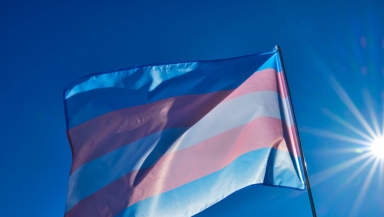
The latest British Social Attitudes Survey has revealed increasing public opposition to allowing transgender people to change the legal sex on their birth certificate.
The 2021 survey asked 6,250 adults their views on a range of issues, including equal opportunities for LGB and transgender people.
Specifically the survey asked whether "a person who is transgender should be able to have the sex recorded on their birth certificate changed if they want".
It found that support for the proposal has fallen "markedly", from 58% in 2016, to 53% in 2019 and 32% in 2021.
The numbers disagreeing have risen from 22% in 2016, to 24% in 2019 and 39% in 2021.
The wording of the survey in 2021 was changed from previous years to the "sex recorded on their birth certificate", as opposed to "the sex on their birth certificate".
"It may be that some people accept that people should be able to secure some form of legal recognition of their 'acquired gender' but also believe that this should not involve changing the sex that is recorded on their birth certificate," said the National Centre for Social Research, which published the report.
"In any event, we should be aware that there is apparently still some potential for disagreement about what should be done about the rights and recognition of transgender people.
"This, perhaps, is not surprising given it is a topic that has only become the subject of widespread discussion in recent years."
The survey also asked whether "attempts to give equal opportunities have gone too far or not gone far enough" for LGB and transgender people.
In the case of transgender people, opinion was evenly split, with a third saying that attempts had gone "too far", while around the same saying they were "about right" (32%) or had "not gone far enough" (32%).
A quarter of those surveyed felt that attempts to give equal opportunities to lesbians, gay men and bisexuals had gone "too far", compared to just under a third (30%) who felt they had "not gone far enough", and 43% who felt they were "about right".













